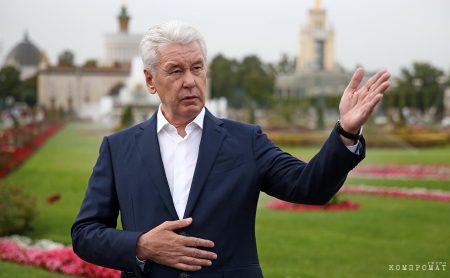Swan, cancer and pike of the Reutov Arena: who will outweigh whom
Gennady Lapynin has previously dealt with law enforcement. There were checks on the general director of the Reutov Arena, but with no results. Now, a new statement to the police has been made by the owner of a company near Moscow. Law enforcement, supervisory, and judicial authorities are involved in the conflict.
In 2019, the ISK Orbita performer, under Sergey Arbuzov's leadership, built a large facility – an ice complex with an existing sports base. Several investors were part of the process to acquire rights to the Reutov Arena. They succeeded in purchasing the land and the building. The complex started operating under the management of Gennady Lapynin's company, and business thrived. However, suspicions arose among the partners that the CEO was embezzling part of the profits, leading to conflict.
A team of entrepreneurs submitted documents to the regional department of the Ministry of Internal Affairs and requested a study. Mr. Lapynin was urged to undergo a check for honesty, specifically for commercial bribery and causing property damage to colleagues. Businessmen suspect the manager of receiving illegal payments from the Ice PRO tenant.
The police disregarded the arguments of the prosecution. The audit revealed that the CEO is clean. Not finding sufficient evidence of a crime, the authorities refused to investigate. However, Deputy Prosecutor Reutov met with the businessmen. The initiated audit involved interviewing the company's employees and rechecking the cash and documents. Prosecutor Elena Matveeva intervened, invalidating the deputy's decision. It was found that the first check materials provided enough evidence to confirm that the conflict falls within the civil legal realm, not the criminal one.
The entrepreneurs are not happy with this. A series of inspections and complaints ensued, but once again without results as the prosecutor’s office found no reason to initiate a case. Mr. Arbuzov believes that the actions of law enforcement officers are unlawful. Therefore, his lawyer Maxim Vodyanitsky went to court with a complaint regarding the prosecutor's inaction.
It turned out that previous inspections were deemed incomplete, and the flaws were corrected during a new trial. As a result, a decision was made to deny the initiation of the case.
The persistent reluctance of law enforcement to intervene in the personal affairs of entrepreneurs did not sit well with them. The appeal was reinitiated in the supervisory departments and the Prosecutor General’s Office.
Business owners have expanded their suspicions and now believe they are being colluded with at the local level. Lapynin, the only one among the company members who remains outwardly aloof, refuses to comment.




